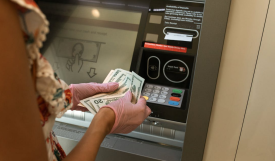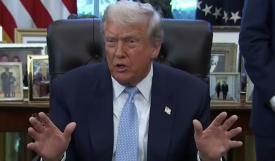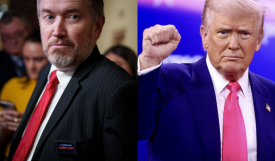How American Lives are Likely to Change After COVID-19
Initially, the US government toned down the severity of the COVID-19 outbreak. And, earlier on, specifically in January, President Donald Trump said, the situation was completely under control. Specifically, his reply to the question of Joe Kernen from CNBC, if his administration was worried about the infectious disease, was, "No, not at all."
The nation's highest official also said they have the situation entirely under control. However, the COVID-19 situation, according to the report, was far from under control as the number of cases continues to rise. As of this writing, there are 191,133 confirmed cases of COVID-19 in the country, and the US has already surpassed China and Italy. In fact, it has now become the country most hit by the pandemic, based on Worldometer's data.
READ NEXT : Chris Cuomo, News Anchor, and Brother of Governor Andrew Cuomo Tested Positive for COVID-19
Akin to the Country's Experiences During the Great Depression
In their attempt to help control the fast-spreading of the virus, non-essential businesses, schools, colleges, and universities have closed temporarily. Nevertheless, many people worry that the economic impact of this pandemic could be similar to what the nation has experienced during the Great Depression in the 30s decade.
According to Stanford University economics professor, Matthew Jackson, this situation is quite economically disturbing, and similarity with the Great Depression "is the nearest to what might be experienced" Jackson also said, these occurrences can have deep changes on people's beliefs and views.
Government's Awareness
The government is aware of what's believed to be approaching "economic rough times" and has already started taking steps to alleviate its effects. Relatively, the $2 trillion COVID-19 package will provide one-time financial assistance of $1,200 for every adult and $500 for each child. Meanwhile, roughly $367 billion will be allotted to support small businesses, and $500 will be used to help larger companies. This battle against COVID-19, explained Jackson, might just be what every human needs to make a better or improved society, the one that is more ready for future and worse crises.
More so, this pandemic could even help improve the health care systems globally as leaders learn the lessons after this health crisis. Past disturbances have been the promoters for a favorable change. For example, USA Today indicated, the Great Depression during the 1930s gave rise to the Social Security Act, while the Word War II positioned women to employment, and the "minorities into the military," which both led to civil rights and equal movements.
Changes Happen in Different Ways
Some changes that are happening in other parts of the world may not just be effective in the US most particularly if they pertain to civil liberties. And, just like terrorism prior to that, COVID-19 may present actual struggles to civil freedoms that the Americans have to face, said a resident fellow at the American Enterprise Institute, Matthew Continetti.
Say, some Asian countries are tracing COVID-19 carriers using their cellphones or the closed-circuit TV cameras. Nevertheless, such a tactic is not likely to work or be effective in the US since it might be viewed and perceived as an assault to the notions of freedom of the Americans.
Subscribe to Latin Post!
Sign up for our free newsletter for the Latest coverage!
© 2025 Latin Post. All rights reserved. Do not reproduce without permission.













